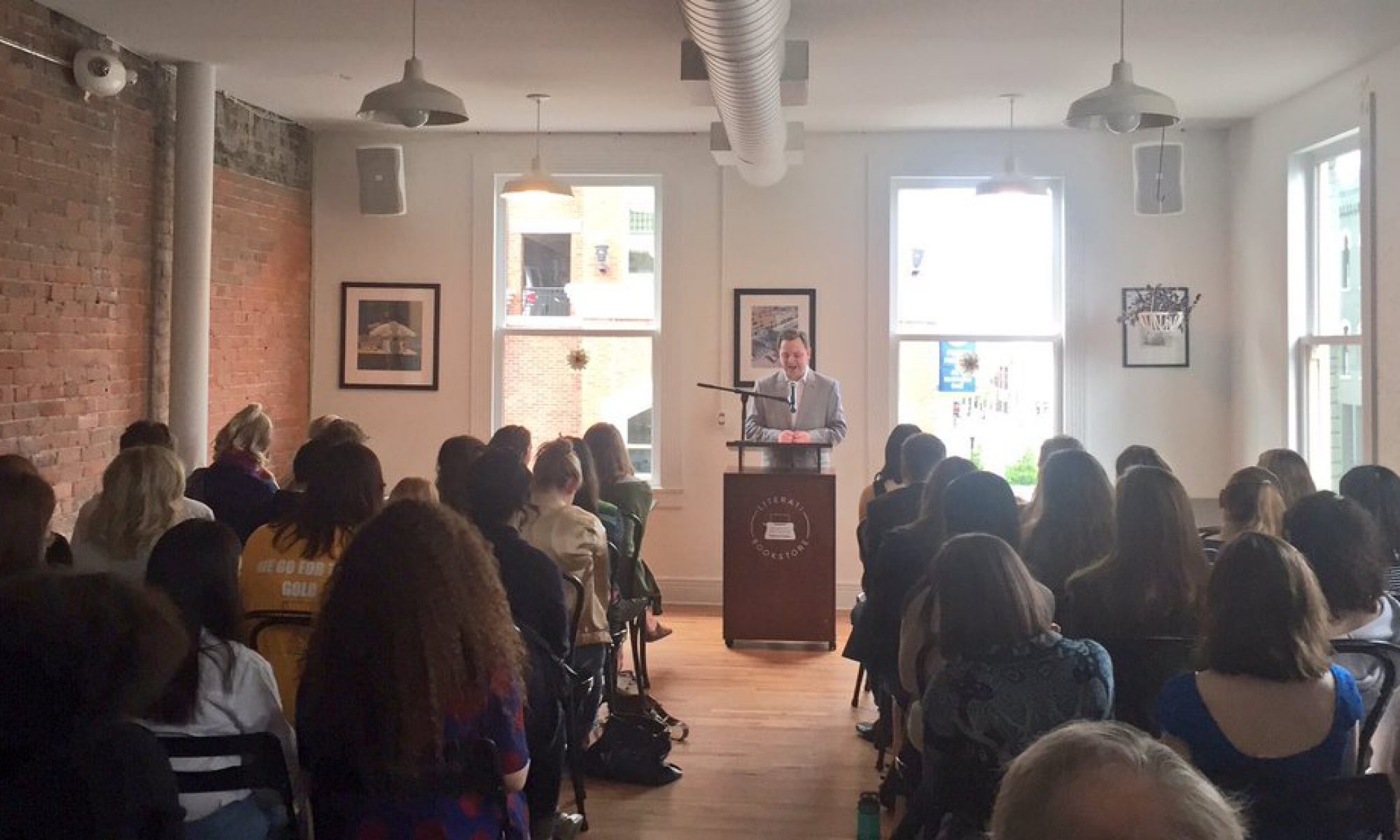On Friday, October 19, 2018, my tutors from the Skyline Writing Center traveled to the Sweetland Center for Writing at the University of Michigan to celebrate the National Day on Writing with Christine Modey’s tutors. The National Day on Writing, sponsored annually by NCTE, is a time to remember the reasons that we’ve been compelled to pick up a pen, open a computer, and share our thoughts. I wrote in a recent post that while reading has been rescued from the doldrums of compliance by a committed group a big names in the field, like Penny Kittle and Kelly Gallagher, writing has yet to undergo the same transformation in our schools, as students still mainly write for internal audiences, for standardized testing and college admissions ends, and for grades. There’s very little to fire the imagination or stoke passion, and, by the end of high school, writing can even be something dreaded, particularly if the institutional ecology isn’t equipped to or compelled to raise student voices in any substantive way.
The student choice movement in reading is having huge impacts on students in my classroom and classrooms around the country: twitter chats are springing up about choice reading, teachers are sharing their successes daily on social media, and studies are being done to provide additional support for schools, administrators, teachers, and parents that are reluctant to embrace the power of getting students paired with the right book. This is exceptional work, as building students’ literacy skills is the key to building equity in our schools and districts, but we often leave writing out of this vital discussion. Getting students to reconnect with writing as fun–as a legitimate way to share feelings, expand thoughts, and create change–can have huge impacts on our goals to close achievement gaps by raising and amplifying student voices. We can change the institutional ecologies around writing, slowly, but surely, and recuperate writing from its position as the thing you have to do rather than the thing you choose to do. Practicing writing in volume–in all of the disciplines–is a great way to help students get better, particularly if they can see the impact of their words.
The opening “icebreaker” sessions were designed to get students thinking critically, working collaboratively, and engaging creatively with writing and with one another. Students rotated through three stations: a station where students completed the phrase “I write because…” on paper circles that would be displayed in our Writing Center and shared their responses with their group, a station where students completed an “Exquisite Corpse” activity that encouraged students to play with language, and a game where objects were tossed around a circle in a pattern to model the many academic, social, and emotional demands of peer tutoring and the importance of teamwork and communication in an often-stressful environment. This year, the Skyline Writing Center welcomed 30 new tutors, our largest number since we opened, and with limited time during the school day for community building, having genuine opportunities for students to connect, build trust, and share vulnerability in a contextually meaningful way was vital for the social-emotional growth of our tutors and the edification of tutor-to-tutor relationships foundational to our continued success.
The next part of the day would center on getting students to consider how they can use their voices as everyday advocates for educational equity at Skyline, in the Ann Arbor Public Schools, in our region, and even as part of large national networks. Students were able to write letters to local, regional, and national officials suggesting reforms to elements of their school or schools more generally that need to be shifted so that all students have equal opportunities to achieve, students could make videos about times when they saw writing make a social change, and they were able to create art that will be displayed in our Writing Center to help other students see the importance of literacy and writing, especially as we try to narrow persistent achievement gaps.
Edifying trust and sharing vulnerability earlier in the day with our “icebreakers” was vital, as students worked in small groups to share ideas about writing and social change, which required them to be open about their beliefs, values, triumphs, and tribulations and to listen to and be empathetic to experiences potentially far different from their own. Our Writing Center, which contains multitudes of diversity, requires students to engage with one another on socially cellular levels to have “epiphanies of other,” which activities like this encourage.
Our final activity of the day was an ekphrastic writing competition at the University of Michigan Museum of Art (UMMA), which opened early to accommodate our group. Ekphrastic writing has been shown to be instructive for students learning to be empathetic, which was part of our day’s intent. Tutors had the run of the Modern Contemporary gallery, and were given about 20 minutes to compose a poem based on a piece of art they select. Students were put in groups to select one poem to move to the final round, which was judged by Raymond McDaniel, the world-famous poet. Students not only had to take perspectives when telling stories based on the art, but they were treated to the perspectives of other students, compelling them to engage in stories and experiences that aren’t their own. This was an exciting creative experience for students–it was fun, public, and sharable–and it was an important lesson in the importance of stories to our fundamental humanity.









